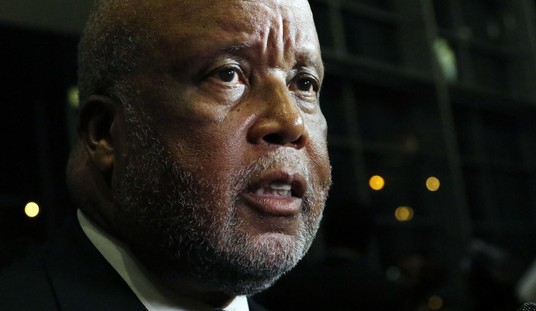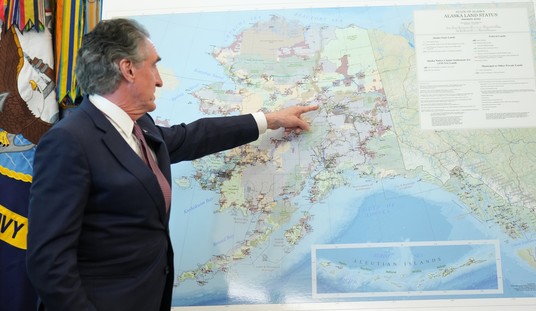The City of Tempe once honored 25-year-old Austin Davis for his work feeding the homeless. Then, something changed, and the city is now prohibiting him from helping those in need.
What started as a genuine desire to help homeless people get off the streets has morphed into a legal battle with the City of Tempe.
Davis, a poet and skateboarder, began feeding the homeless while he was a student at Arizona State University. He began forming friendships with homeless people living in a makeshift encampment in an area known as the river bottom.
“They brought me down to their space and trusted me, even though I could’ve been anyone,” Davis told Townhall. “That meant everything to me—and I wanted to show that same trust and love back.”
What began as casual conversations eventually evolved into weekly picnics and an expanded effort to help the homeless regain their dignity while having their basic needs met.
“The folks I serve aren’t just names in a system,” Davis explained. “They’re my family. They’re my homies. When they trusted me with their space, I felt a responsibility to show them that same trust back.”
Davis later formed “AZ Hugs,” an organization that supports the homeless community with food, water, and toiletries. He has played an instrumental role in helping people get off the streets, beat their addictions, and lead healthier lives.
The homeless population in Tempe was 355 in June 2024, a 31 percent decline from 515 in August 2022.
Davis’ work became so well known that the city gave his organization a “Neighborhood Event of the Year” award. But two years later, the city changed its tone. After once celebrating his work, the local government criminalized it under a vague and rarely-used ordinance requiring a “special event permit” to hold gatherings in public parks.
Recommended
The permit was typically required for larger events such as concerts, parties, and others.“It was a law that had only ever applied to big concerts and commercial events,” Davis said. “They just started using it as a weapon.”
For serving meals to the homeless, Austin Davis got handcuffed, jailed, and kicked out of public parks by the same city that just months earlier gave him an award *FOR* his charity work with the homeless. https://t.co/rrLKNcnMzL
— Pacific Legal 🗡⚖️ (@PacificLegal) April 14, 2025
Davis and his team did their best to comply with the law. They obtained liability insurance, applied for permits, and worked with local churches. Still, it became clear that the city would never allow the organization to serve the homeless.
“They told us we’d have to stop all operations for 60 days just while they considered our application,” he said. “That’s 60 days without food or water for people who depend on us to survive.”
Davis and his team refused to abandon the people they had been helping for years. That’s when the arrests occurred.
“They arrested me while I was picking up dinner supplies,” Davis recalled. “I hadn’t even gotten to the park yet. I spent the night in jail—for feeding hungry people.”

The punishment did not stop there. The city banned Davis from every public park and desert preserve in the city.
As the city ramped up its crackdown, Davis faced 34 trespassing charges. As the fines began to add up, Davis accepted a plea deal.
“I was banned from parks, from nature preserves, and if I’m arrested again for anything—even stepping on the wrong sidewalk—I’m looking at county jail time,” Davis said. “But the worst part? My community still needs me. That never stopped.”
Indeed, even though Davis can no longer participate, his team is still helping homeless people in the city. “We’ve made it strategic. We have a whole system now—drop-offs, coordination. The community is still feeding itself. I just can’t be there with them,” he said.
Anastasia Boden, senior attorney at Pacific Legal Foundation (PLF), is representing Davis and Ron Tapscott, another volunteer who faced fines for serving homeless people. She argued the ordinance—and the selective manner in which the city applied it—is a violation of Davis’ constitutional rights.
“The city has taken a permit that was meant for large entertainment events and twisted it into a blanket ban on outdoor charity,” Boden told Townhall. “If their interpretation stands, it could apply to prayer circles, peaceful protests, or even someone holding a sign that says ‘Free Hugs.’”
Davis explained, “There’s no minimum and there’s no maximum. It’s intentionally vague… They saw an opportunity to say, ‘Okay, now even a picnic is illegal.’”
PLF’s lawsuit argues the ordinance violates the First and 14th Amendments. “They’re essentially saying that you need to pay the government in order to exercise your right to gather and to serve others,” Boden said. “That’s not just absurd—it’s unlawful.”
Davis and his team attempted to comply with the city by moving their operation to a local church. They figured that serving the homeless in a private parking lot would address the issue since they were not operating in public parks.
But even this did not stop the city from interfering. “They came and told the church they were violating the special event permitting process—even though it was their own lot,” Tapscott told Townhall.
So, why did the City of Tempe change its approach to Davis’ work? PLF believes the crackdown coincides with the city’s plan to gentrify neighborhoods to attract developers. “They displaced the homeless from the river bottom to build a hockey stadium,” he said. “Now they’re trying to make sure no one sees poverty, because it gets in the way of luxury apartments.”
The City of Tempe did not respond to requests for comment.
Yet, the problem persists. Through AZ Hugs, Davis has helped many improve their lives. Mercedes discussed how he helped her get into rehab in her quest to become sober. “If it weren’t for Austin, I’d still be on the streets—or I’d be dead. He gave me hope when the city treated me like trash,” she said.
Ricky William, another individual AZ Hugs helped, credits Davis with helping him abandon his addiction to fentanyl and methamphetamine. “I went from homeless and hopeless to managing a store and living clean,” he told Townhall in an email. “They say some heroes wear capes. To me, they look like Austin Davis.”
If people like Davis are unable to continue serving the homeless, it could have dire consequences. “When people can’t camp together and are forced to hide alone, they die alone. They overdose alone. That’s what this policy is doing—making it easier for people to disappear,” he said.
Despite his legal troubles, the activist remains laser-focused on his mission. “This was never about politics,” he said. “It’s about taking care of people. When government gets in the way of that, we’ve got a serious problem.”

























Join the conversation as a VIP Member